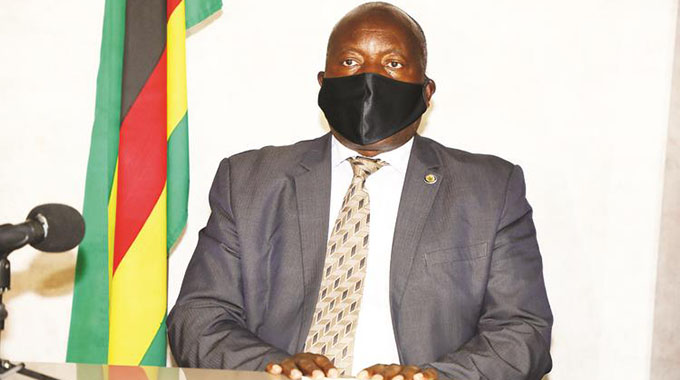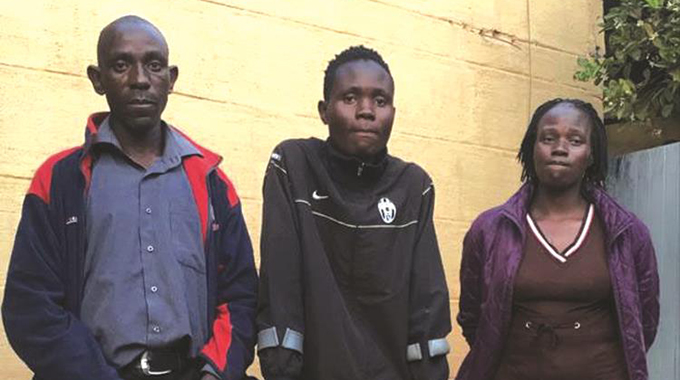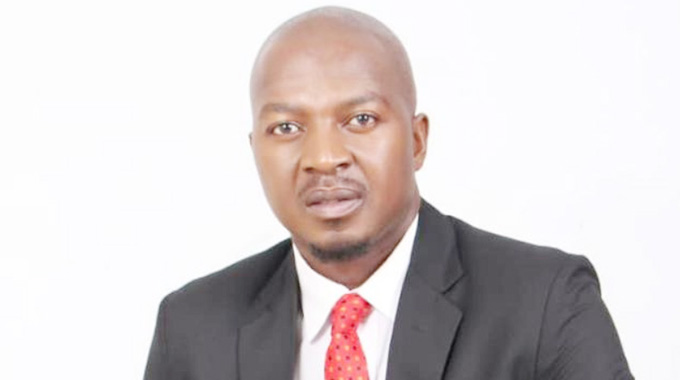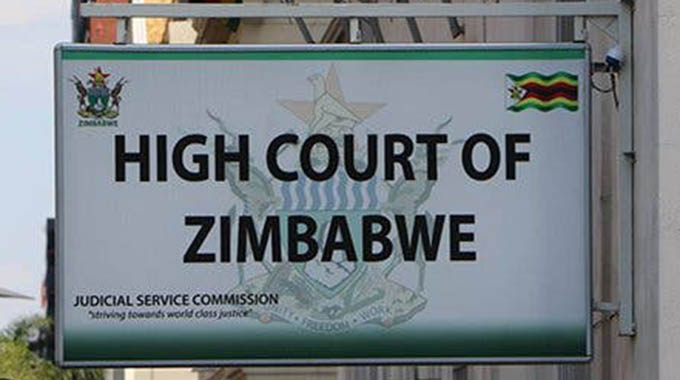For Auba, for Eusebio, for Freddy, for Danai, for Chad, for every Black Panther, Wakanda Forever

Sharuko On Saturday
BEFORE “Black Panther”, the record-breaking, earth-shattering, blockbuster movie, there was “Black Panther”, the trailblazing football superstar.
Both are tales of superheroes — Chadwick Boseman, was the African King of the fictional Wakanda nation and Eusebio da Silva Ferreira was the African King of Portuguese, and European, football.
Known, simply as Eusebio, he rose from the streets of Maputo to transform himself into the original African-born football superstar in the colours of Benfica and Portugal.
The son of a white Angolan railroad worker, and a black Mozambican mother, Eusebio grew up in extreme poverty, after his father died when he was just eight, leaving his mother to take care of her four boys.
But, God gave him a gift, and by the time he was 24, he won the Golden Boot at the 1966 World Cup finals in England, finishing as the tournament’s leading goal-scorer, with nine goals, including four against North Korea.
He was the first African-born footballer to win the Ballon d’Or in ’65, was runner-up in ’62 and ’66 and won 11 Portuguese championship titles with Benfica, scoring 473 goals in 440 competitive matches, for the club.
That makes him Benfica’s greatest goal-scorer, in the club’s 116-year history, while his 56 goals in European competitions, for the club, are also a record.
He was the European Cup top-scorer, during the ’64-’65 season and the ’67-’68 season and, in November 2003, during the celebrations of UEFA’s Golden Jubilee, the Portuguese Football Federation named him as their Golden Player of the past 50 years.
“For me, Eusébio will always be the best player of all time,” the iconic Real Madrid superstar, Alfredo Di Stéfano, said.
Six years ago, on January 5, 2014, Eusebio died from a heart attack, at the age of 71.
The special connection, between us, and the football Black Panther, will always be there — after all, he was the boy from next door, across the border, in Maputo.
Ironically, the year the football Black Panther died, in 2014, was also the year an official announcement was made that the blockbuster superhero movie, “Black Panther”, was being made.
Four years later, the movie premiered in Los Angeles and its All-Star black cast, and black director, were a seismic moment in the history of Hollywood.
The movie shattered records, grossing over US$1.3 billion around the world, which represented an extraordinary commercial success story, given it had been made from a US$200 million budget.
It’s the highest-grossing movie ever made by a black director, Ryan Coogler, the third highest-grossing film in the United States and Canada, where it grossed US$700 million, and the 10th highest-grossing movie of all-time.
It received seven nominations, at the 91st Academy Awards, the first superhero movie, in the history of the Oscars, to get such a nomination.
Last Friday, the movie Black Panther, Chad Boseman, died, after losing a secret, and brave, four-year battle with colon cancer.
He was just 43.
We felt his death, as a very personal loss, because he was one of us, he was black and he was our superhero and his amazing acting talent had helped him smash barriers, and thrive, in a largely conservative white-dominated Hollywood kingdom.
And, there will always be another special connection, between the Black Panther, and us, as Zimbabweans, because one of the superstars of that blockbuster movie, is one of us.
Danai Jekesai Gurira!
The one who went to Dominican Convent High School in Harare, before making it big, very big, in Hollywood.
Just like the girl next door, our dear sister, our beautiful daughter, our trailblazing child and, of course, our proud and fearless Wakanda Warrior.
WAKANDA WARRIOR, BLACK PANTHER, MARK MAKWESHA
Somehow, the director of Black Panther, movie, had to cast Gurira as a grand Warrior — Okoye, the head of the Dora Milaje, Wakanda’s all-female Special Forces.
Gurira’s parents, Roger and Josephine, moved to the United States in 1964, just two years before another Zimbabwean, a football superstar, also left the country to settle in Portugal.
His name was Freddy Mkwesha.
Like Roger and Josephine, Mkwesha would return home, after Independence, and like the Guriras, his life would, forever, be linked with the Black Panther.
That Black Panther, for Mkwesha, was Eusebio, the man who was plucked from Mozambique, and handed Portuguese citizenship, to star on the grand stage of European and World football.
And, while Mkwesha doesn’t regularly feature, in conversations, when the greatest Zimbabwean footballers are mentioned, those who had the privilege to watch him play, say he was a genuine superstar of the game.
Those who saw him play, his big frame, his athleticism, the way he tormented defenders, say he was ahead of his time and, if ever we had a Black Panther in our football, then it has to be Mkwesha.
For most of the local white defenders he faced, on the domestic scene, there was just one instruction that repeatedly came up among them, “Mark Makwesha,’’ every time they came up against him.
As long as they found a way, to mark Mkwesha, then they always felt they had a chance against the Glamour Boys.
“Unfortunately, I never watched this legendary forward in action but over the years, I have been convinced — from tales and research — that he is, arguably, the deadliest finisher ever seen in the country,’’ Charles “CNN’’ Mabika, widely considered the most authoritative institutional memory bank of Zimbabwean football, wrote five years ago.
“The former Dynamos free-scoring predator was the first local export to ply his trade in Europe and still holds the ‘quickest transfer deal’ record in local football.
“He was signed by touring Portuguese giants, Sporting de Braga in 1966, after a blistering performance for the then Rhodesian XI Select side, in a friendly encounter at Glamis Stadium in the capital.
“Although Braga won the match 5-3, it was a hat-trick performance by Mkwesha that saw the visiting team’s officials sign him, immediately after the match, and the big striker joined his new club, barely a week later, via Mozambique.’’
Statistics don’t lie and, when it comes to strikers, it’s all about goals, goals, and more goals.
That, in his first two seasons at Dynamos, after joining the Glamour Boys, from amateur side Mhondoro United in 1963, Mkwesha was the top-scorer in the domestic top-flight league, was a powerful, and beautiful, parade of his goal-scoring pedigree.
One particular match, which the DeMbare fans of that age always talk about, came against the all-white Salisbury Callies in 1964 at Callies Stadium in the capital.
The Glamour Boys were down 0-3, with just three minutes of regulation time left, and when the late Jimmy Finch scored for them, it looked largely a mere consolation.
But, then, they had Mkwesha.
A real beast in their squad, who then scored twice, in the final minute, to secure an improbable draw.
Some say it was the romantic age of domestic football, when superstars roamed its football fields, like Black Panthers, playing the game with both grace and guile, with both power and precision and with both a degree of artistry and a touch of chemistry.
Even the nicknames of the players, were quite fashionable — “Bricks’’ for Danny Thomas, “Trojan Horse’’ for Owen Chandamale, “Teacher’’ for Allan Hlatshwayo, “Rich-Rich’’ for Richard Chiminya and “Magitare’’ for Bernard Marriot-Lusengo.
They even had someone called “Amato The Devil,’’ whose real name was Patrick Dzvene, the first black footballer from this country to be signed by a foreign club, when he moved to Ndola United, in Zambia in 1964.
He died 10 years ago.
They also had “Dusty King,’’ his real name was Freddy Gotora.
A one-armed terrier, whose brilliance helped him make a mockery of his disability, to write his name into domestic football folklore.
“A man called Freddy Gotora or ‘Dusty King,’ as he was affectionately known, was at one time described as the best number eight on the continent,’’ David Mungoshi, the author, poet and actor we lost last Saturday, wrote in this newspaper, two years ago.
“Gotora went to Chitsere Government School in Mbare, where his football prowess first showed. That was also the place where something happened to make him lose half of his left arm.’’
WAKANDA FOREVER, WITH LOVE FROM LIBREVILLE TO LONDON, HARARE TO HARLEM
Just hours after Chad, the movie Black Panther, died in Los Angeles, another football Black Panther, Pierre-Emerick Aubameyang, honoured him, in the best way possible, by scoring a superb goal, in the FA Community Shield match, at Wembley.
The Arsenal skipper, who has certainly earned his place now as one of the world-class football strikers today, celebrated his goal against Liverpool, with the Wakanda pose.
It’s not the first time he has identified with the Black Panther.
In March last year, after scoring twice against French side Stade Rennes in a Europa League match, Auba wore the Black Panther mask to celebrate his goals.
“I needed a mask which represents me, and that is the Black Panther,” he said. “In Gabon, we call the national team the Panthers.”
Then, he turned to Instagram, to write what he could not say, in that moment of glory at Wembley, to honour Chad.
“May you Rest in Peace. You gave us so much Hope and strength thanks for everything #wakandaforever.”
Like Eusebio before him, Auba is an African king, whose goals are helping him conquer the European, and global, football kingdom.
He might play for the club, Arsenal, which in the ‘90s, and at the turn of the millennium, represented the ultimate rival, for us Manchester United fans.
But, football rivalry, the quest for league titles, and everything that football can provide to its successful clubs, become really insignificant when bigger issues — like the advancement of African pride, and the interests of black people — is at stake.
In an era where racism has again been brought to the fore, fuelled by a number of unarmed black men being killed by the police in America, the rivalry of the football clubs, which we support, and their endless quest for glory, melts into insignificance.
And, in this darkness, where sport is taking a stance against such senseless slaughter, Chad was, as a black superhero, as oasis of hope in a desert of hopelessness.
He was our flicker of light, in the darkness that now engulfs our world, an island of love in a raging ocean of hate.
Our fathers had their superheroes, their Black Panthers, in the ‘60s, superstars like Eusebio, superstars like Mark Mkwesha, superstars like Dusty King, superstars like Amato The Devil.
Today, we have our superheroes, our Black Panthers, superstars like Aubameyang, our superheroines, our Black Panthers, superstars like Danai Gurira.
Until, last Friday, we also had another superhero, our Black Panther, Chad Boseman.
Somehow, fate ensured he also played the role of another black superhero, another Black Panther, in yet another blockbuster movie.
The movie’s name is “42,’’ and it’s a powerful biopic in which Chad played the role of Jack Robinson, the first African American to play in Major League Baseball in the modern era.
A legend of the game, Robinson won the inaugural Rookie of the Year award in 1947, won the league’s Most Valuable Player of the Year award two years later, the first black player to receive this award, and was an All-Star member for six straight seasons.
In Major League Baseball, April 15, is set aside as the Jackie Robinson Day, where every player wears the jersey number 42, in honour of the day the legendary athlete made his league debut.
This year, because of the Covid-19 outbreak, the Jackie Robinson Day was moved to August 28, the day the legendary player met the then Dodgers general manager, Branch Rickey, in 1945, and they hatched a plan for the player to be incorporated into the MLB.
August 28 was also the day, in 1963, when Martin Luther King Jnr delivered his immortal “I Have A Dream’’ speech during the historic March on Washington.
Ironically, it was also the day Chad died.
His last powerful speech, probably, came when he accepted the Screen Actors Guild Award, for Black Panther, in Los Angeles, in January last year.
“To be young, gifted and black,’’ he said, “we all know what it’s like to be told that there is not a place for you to be featured, yet you are young, gifted and black.”
“We know what it’s like to be the tail and not the head. We know what it’s like to be beneath and not above.”
When he made that speech, he was 42.
The same number which superhero, Jackie Robinson, wore during his time in Major League Baseball.
Eusebio, our Black Panther, the boy next door, was born in ’42.
When Auba scored on Saturday, and chose to honour Chad, it was his fifth goal at Wembey in the last 42 days.
And, our local Black Panther, Danai Gurira, is 42.
For Auba, for Eusebio, for Freddy, for Danai, for Chad, for the Dusty King, for Amato The Devil, for every Black Panther, Wakanda Forever
To God Be The Glory!
Peace to the GEPA Chief, the Big Fish, George Norton and all the Chakariboys in the struggle.
Come on United!!!!!!!!!!!!!!!!!!!!!!!!!
Bruno, Bruno, Bruno, Bruno, Bruno, Bruno!
Text Feedback — 0772545199
WhatsApp — 0772545199
Email — [email protected]; [email protected]
You can also interact with me on Twitter — @Chakariboy, Facebook, Instagram — sharukor and every Wednesday night, at 9.45pm, when I join the legendary Charles “CNN’’ Mabika and producer Craig “Master Craig’’ Katsande on the ZBC television magazine programme, “Game Plan”








Comments